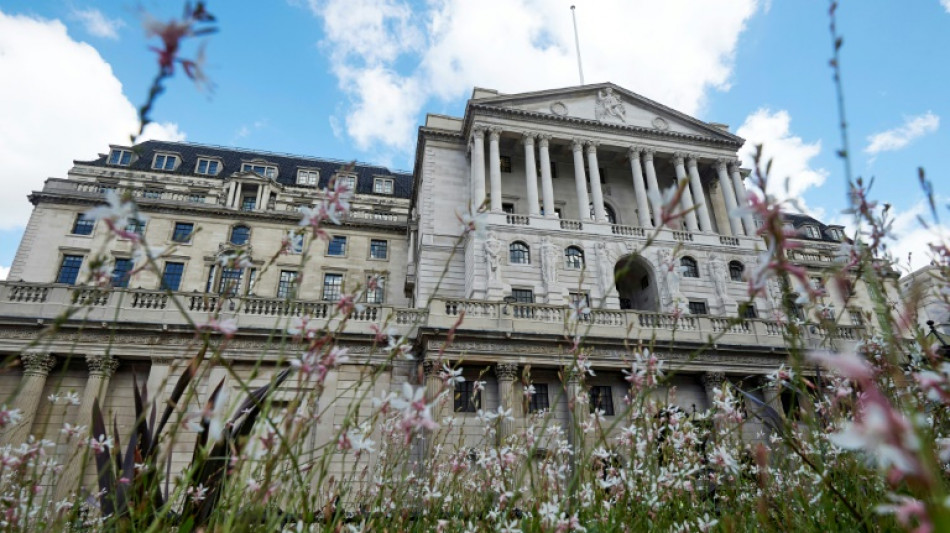
SCS
0.0000


The Bank of England is widely expected to cut its key interest rate Thursday, with policymakers mindful of US tariffs and their potential risks to an already-struggling UK economy.
With the BoE likely to trim borrowing costs by a quarter point to 4.0 percent, focus will be on potential changes to the central bank's economic growth and inflation outlooks.
"There are clear signs of (UK) economic deterioration, particularly stemming from the labour market," Victoria Scholar, head of investment at Interactive Investor, noted ahead of the latest rate call.
"Yet policymakers must weigh this up against the risk of inflationary pressures particularly with rising food prices and international uncertainty around (US President Donald) Trump's tariffs and volatility in energy markets."
Against this backdrop, analysts expect splits within the Bank's Monetary Policy Committee.
Some argue that while the majority of the nine policymakers, including governor Andrew Bailey, will vote for a quarter-point cut, some are likely to demand an even larger reduction and others no change.
A quarter-point cut Thursday would be the BoE's fifth such reduction since starting a trimming cycle in August 2024, emphasising its "gradual" approach to reducing rates.
The BoE's main task is to keep Britain's annual inflation rate at 2.0 percent but the latest official data showed it had jumped unexpectedly to an 18-month high in June.
The Consumer Prices Index increased to 3.6 percent as motor fuel and food prices stayed high.
- Weak economy -
Latest official figures also show that Britain's economy unexpectedly contracted for a second month running in May and UK unemployment is at a near four-year high of 4.7 percent.
This is largely down to Prime Minister Keir Starmer's Labour government increasing a UK business tax from April, the same month that the country became subject to Trump's 10-percent baseline tariff on most goods.
London and Washington reached an agreement in May to cut levies of more than 10 percent imposed by Trump on certain UK-made items imported by the United States, notably vehicles.
Last month, the BoE warned in a report that tariff unpredictability and Middle East conflicts pose risks to UK financial stability.
The US Federal Reserve last week kept interest rates unchanged, defying strong political pressure from Trump to slash borrowing costs in a bid to boost the world's biggest economy.
Asked about US tariffs following the decision, Fed Chair Jerome Powell told a press conference: "We're still a ways away from seeing where things settle down."
The European Central Bank is meanwhile widely expected to keep rates unchanged at its next meeting, with eurozone inflation around the ECB's two-percent target.
But that could change, according to some economists, based on how Trump's tariffs affect the single-currency bloc.
C.Mak--ThChM